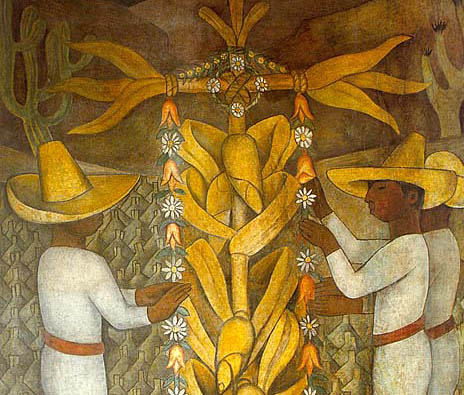
This week, we will be studying the Incas and the Spanish Conquistador, Pizarro, in History class.
You will also be getting a study guide for a major test on the Maya, Aztec, and Inca and the Spanish conquistadors which will be given on Tuesday, January 17.
In Literature, we will be thinking and reading about the theme of Journeys and Quests (or Conquests) as we read a few “stories” from the Odyssey, by the Greek poet, Homer. Our question for the week is: What makes a person decide to leave the known for the unknown?
Your spelling words will be based on nouns that end in ‘y’ but add an ‘s’ when made plural. They are on the back of this handout. Your test will be Tuesday, January 17.
We will be concentrating on editing and correcting our writing assignment from last week—and, yes, writing it in cursive. Do you remember me telling you about the state educational objectives for 5th grade and what they include about writing? I have stated them below:
Writing/Writing Process. Students use elements of the writing process (planning, drafting, revising, editing, and publishing) to compose text. Students are expected to:
(A) plan a first draft by selecting a genre appropriate for conveying the intended meaning to an audience, determining appropriate topics through a range of strategies (e.g., discussion, background reading, personal interests, interviews), and developing a thesis or controlling idea;
(B) develop drafts by choosing an appropriate organizational strategy (e.g., sequence of events, cause- effect, compare-contrast) and building on ideas to create a focused, organized, and coherent piece of writing;
(C) revise drafts to clarify meaning, enhance style, include simple and compound sentences, and improve transitions by adding, deleting, combining, and rearranging sentences or larger units of text after rethinking how well questions of purpose, audience, and genre have been addressed;
(D) edit drafts for grammar, mechanics, and spelling; and
(E) revise final draft in response to feedback from peers and teacher and publish written work for appropriate audiences.
Oral and Written Conventions/Handwriting, Capitalization, and Punctuation. Students write legibly and use appropriate capitalization and punctuation conventions in their compositions. Students are expected to:
(A) write legibly by selecting cursive script when appropriate
HOMEWORK for this week:
For Tuesday evening: Read pages 294 to the top of 301 in Collections for Young Scholars, Vol. 5, Book 2 and answer the reading questions from the packet I will give you in class. These are due on Wednesday morning. Be ready to discuss them and the reading.
For Wednesday evening: Read pages 301-303 and answer the reading questions. Due Thursday morning. Be ready to discuss them and the reading.
For Thursday evening: Read the last two stories about Odysseus, pages 303-309, and answer the reading questions. Due Friday morning. Be ready to discuss them and the reading.
Your corrected final draft of “The Angry Elf” story is due on Thursday morning, January 12.
There will be a SPELLING TEST on Tuesday, January 17.
There will be a HISTORY TEST on Tuesday, January 17.
SPELLING WORDS for Test on Tuesday, January 17.
(If the singular noun has a vowel before the 'y,' just add an 's' to make it plural)
(If the singular noun has a consonant before the 'y,' drop the 'y' and add 'ies' to make it plural)
1. attorneys
2. essays
3. turkeys
4. valleys
5. fairies (fairy)
6. universities (university)
7. histories (history)
8. secretaries (secretary)
9. symphonies (symphony)
10. varieties (variety)
11. victories (victory)
13. trophies (trophy)
14. injuries (injury)
15. colonies (colony)








